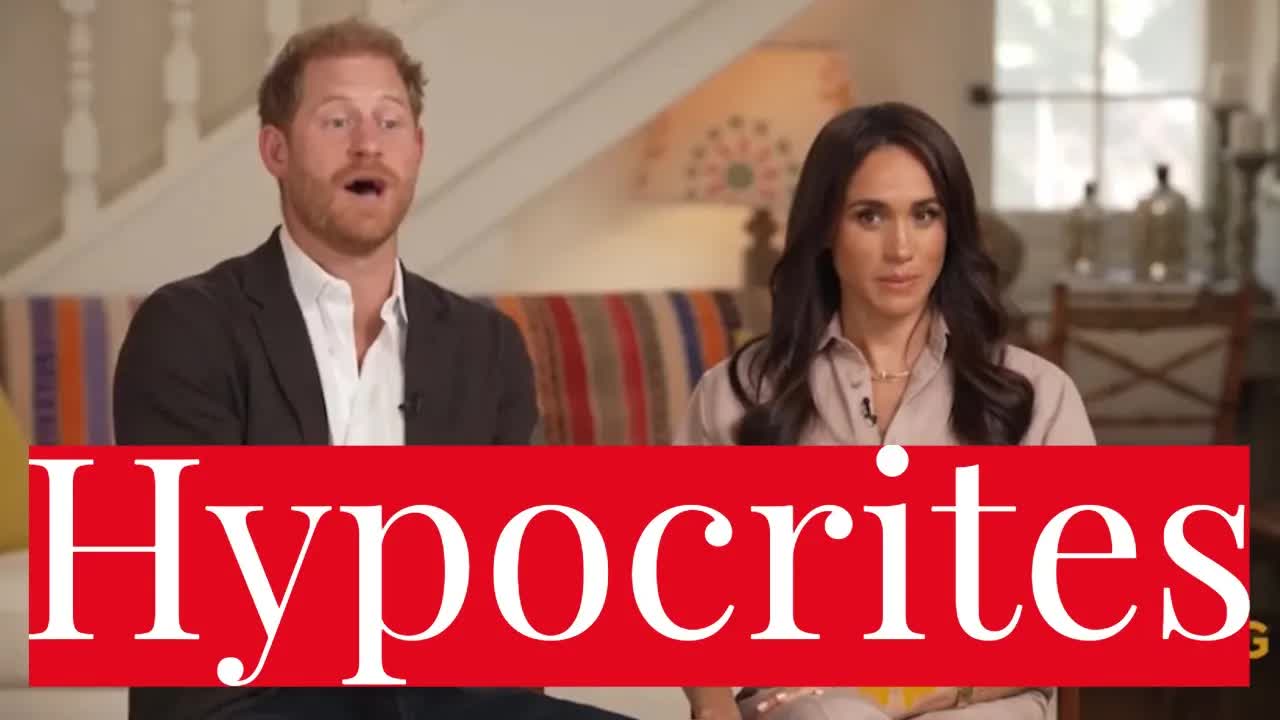Must Read
The Sussexes and Their Hypocrisy on Online Safety: A Closer Look
Prince Harry and Meghan Markle are back in the spotlight, this time addressing the critical issue of online media safety.
In their first interview of 2024, they're set to discuss the dangers of social media with journalist Jane Pauley.
While they aim to shed light on the impact of digital platforms on parents and children, many are questioning their credibility on this matter.
After all, their children are still too young to even be on social media, raising eyebrows about their authority to comment on such an issue.
Critics have pointed out that the couple has been vocal about parenting, despite the fact that they rarely appear in public with their children.
How can they effectively advocate for children's safety online when they themselves have not navigated these waters yet?
It's a puzzling contradiction that leaves many wondering about their sincerity.
Moreover, the behavior of their supporters, known as the Sussex Squad, complicates their stance on online safety.
This group has been accused of engaging in aggressive tactics, including doxing and harassment of those who criticize Harry and Meghan.
With such a toxic environment surrounding their fanbase, it raises a crucial question: Shouldn't Harry and Meghan address the bullying perpetrated by their own followers before discussing the broader implications of online harassment?
If the Sussexes genuinely wish to tackle the issue of online bullying, a logical first step would be to call out the harmful behavior exhibited by their supporters.
Without addressing this hypocrisy, any statements they make about protecting children from online dangers come off as hollow.
Their focus appears to be more on defending their image than on fostering true online safety.
As they prepare for their interview, it seems that Harry and Meghan are more concerned with their narrative than with the well-being of children.
Their actions suggest that they want to silence criticism rather than promote a safe digital environment for kids.
This inclination towards creating a controlled narrative raises doubts about their commitment to the cause they claim to champion.
In recent months, Harry has expressed his ongoing struggles with media scrutiny, particularly through interviews and articles.
His remarks often reflect a savior complex, positioning himself as the only one who can right the wrongs of the media landscape.
However, many see this as a form of emotional manipulation, where he seeks sympathy while simultaneously engaging in a form of blackmail against his own family regarding security arrangements.
Their latest initiative under Archewell aims to support parents recovering from online harm, but critics argue that this is just another attempt to shift the focus away from their personal issues.
The reality is that they have played a significant role in perpetuating the very toxicity they now claim to oppose.
This contradiction is hard to ignore and only serves to undermine their credibility further.
Furthermore, the couple's claims about wanting to protect their children's privacy seem disingenuous when they frequently engage with the media.
Harry has expressed a desire to shield his kids from the very dangers of social media, yet they continue to publicly discuss them.
This inconsistency leads to questions about their true motivations and whether they genuinely care about the well-being of their children or are merely using them as part of their narrative.
The discussion around parenting has become increasingly complex, especially in the context of social media.
Harry and Meghan's lack of visible parenting experience casts doubt on their authority to speak on the subject.
They need to demonstrate their parenting skills if they wish to be taken seriously in discussions about online safety.
When comparing their situation to other public figures who manage to keep their children out of the limelight while also discussing parenting, it's clear that Harry and Meghan are struggling to strike the right balance.
Their approach appears to be more about maintaining relevance rather than providing genuine insights into the challenges of modern parenting.
As they gear up for their interview, one can't help but wonder how they will navigate the questions surrounding their own behavior and that of their supporters.
The key to their credibility lies in their willingness to confront their own shortcomings and the culture of toxicity that has emerged around them.
Ultimately, Harry and Meghan's journey through the media landscape is fraught with contradictions.
Until they can reconcile their past actions with their current advocacy, their calls for online safety will likely fall on deaf ears.
The world is watching, and it remains to be seen whether they can truly shift the narrative in a meaningful way.




















